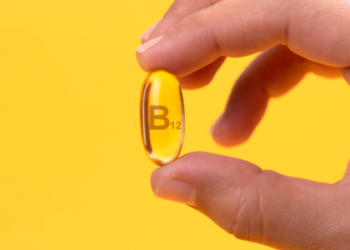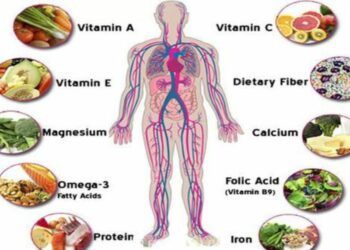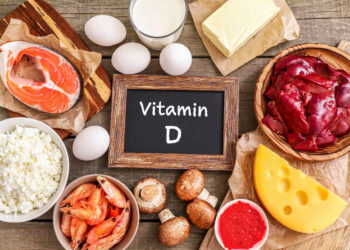
Introduction
Women’s intimate health is a crucial aspect of overall well-being and quality of life. One common issue that many women face is vaginal dryness, which can lead to discomfort, pain during intercourse, and decreased sexual satisfaction. While there are various factors that can contribute to vaginal dryness, such as hormonal changes, medications, and certain medical conditions, the use of vitamins can play a significant role in unlocking natural lubrication and promoting women’s intimate health. In this article, we explore the power of vitamins in addressing vaginal dryness and enhancing overall intimate wellness.
Understanding Vaginal Dryness
Vaginal dryness, medically known as vaginal atrophy or atrophic vaginitis, is a condition characterized by the thinning, drying, and inflammation of the vaginal walls. It can occur at any age, but it is most common during perimenopause and menopause when estrogen levels decline. Vaginal dryness can cause discomfort, itching, burning, and pain during sexual intercourse, impacting both physical and emotional intimacy.
The Role of Vitamins in Promoting Lubrication
Vitamins are essential nutrients that support various bodily functions, and they can also play a vital role in women’s intimate health. Certain vitamins are known to help maintain vaginal moisture, promote healthy tissue, and improve blood circulation to the genital area. Let’s explore some key vitamins that can help unlock natural lubrication:
- Vitamin E: Vitamin E is a potent antioxidant that helps combat oxidative stress and inflammation. When applied topically or taken orally, vitamin E can promote vaginal lubrication by improving tissue elasticity and reducing dryness. It also aids in healing minor vaginal tears and irritation.
- Vitamin A: Vitamin A is crucial for maintaining the health of mucous membranes, including those in the vaginal area. It helps keep the vaginal tissues moist and supple, preventing dryness and discomfort. Vitamin A also supports the production of natural lubrication and enhances the overall health of the reproductive system.
- Vitamin C: Vitamin C is known for its immune-boosting properties, but it also plays a role in maintaining healthy vaginal tissues. This vitamin helps stimulate collagen production, which contributes to the elasticity and hydration of vaginal walls. Additionally, vitamin C strengthens blood vessels, improving blood flow to the genital area and enhancing natural lubrication.
- Vitamin B complex: B vitamins, such as B5 (pantothenic acid) and B6 (pyridoxine), are essential for hormonal balance and overall reproductive health. They support the production of hormones involved in vaginal moisture regulation. Vitamin B complex also aids in reducing stress levels, which can indirectly impact vaginal dryness.
Methods of Vitamin Intake
To harness the benefits of vitamins for intimate health, there are several methods of intake:
- Dietary sources: Incorporating foods rich in the aforementioned vitamins into your daily diet can be an effective way to improve vaginal lubrication. Foods such as avocados, almonds, spinach, citrus fruits, bell peppers, and fish like salmon are excellent sources of vitamins E, A, C, and B complex.
- Supplements: If dietary intake alone is insufficient, supplements can provide a convenient option to ensure adequate vitamin intake. Speak with your healthcare provider to determine the right dosage and type of vitamin supplements suitable for your needs.
- Topical applications: Vitamin E oil or creams can be applied topically to the vaginal area to alleviate dryness and promote lubrication. It is essential to use products specifically designed for intimate use and consult with a healthcare professional before starting any new regimen.
Additional Tips for Promoting Intimate Health
While vitamins can play a crucial role in unlocking natural lubrication, there are other practices that can enhance women’s intimate health:
- Hydration: Staying hydrated is essential for overall health and maintaining vaginal moisture. Drink an adequate amount of water daily to support proper hydration.
- Regular sexual activity: Engaging in regular sexual activity or using sexual aids can help promote blood flow to the genital area and maintain vaginal elasticity.
- Avoid harsh products: Use gentle, fragrance-free soaps, and avoid douching or using harsh cleansers in the vaginal area. These products can disrupt the natural pH balance and lead to dryness.
Conclusion
Vaginal dryness can significantly impact a woman’s intimate health and overall well-being. While there are various factors that contribute to this condition, incorporating vitamins into your routine can unlock natural lubrication and promote vaginal moisture. Vitamins such as E, A, C, and B complex play crucial roles in maintaining healthy vaginal tissues, supporting hormonal balance, and improving blood flow. Remember to consult with a healthcare professional before making any dietary or supplement changes to ensure the best approach for your specific needs. By unlocking natural lubrication, women can reclaim their intimate health and enhance their overall quality of life.






